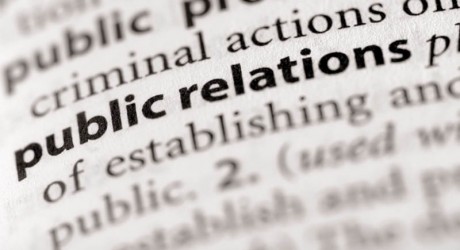WRITES Dean Wiseman, director at FQM Ltd., a health, safety, environment and quality consultancy and training organisation…
“WHO was to know when the wheels were set in motion for the revision of Offshore Safety Case regulations, that the eventual changes would come into effect at such a critical moment in oil and gas history, right in the depths of a prolonged and painful oil slump.
“The timing, it turns out, could not have been better… or worse, depending on your perspective.
“Although it appears we were unable to anticipate the precipitous drop in the price of oil, the change to legislation was in fact well heralded, going back to Macondo in 2010.
“So, the regulations should be on the radar of everyone affected and well in hand within the Management of Change processes within all stakeholder organisations shouldn’t they
“Hmm… the tyranny of the ‘shoulds’!
“Let’s take a look at the back story. On 13 October 2010, following the Deepwater Horizon incident in the Gulf of Mexico in April that year, the European Commission published its initial views on the safety of offshore oil and gas operations in its communication, ‘Facing the challenge of the safety of offshore oil and gas activities’.
“The communication concluded that existing measures did not provide adequate assurance that risks from offshore accidents were minimised throughout the European Union.
“On 28th June 2013, after more than two-and-a-half years in development, the EC published the Offshore Directive. The aim of the Directive was to reduce as far as possible the occurrence, and to limit the consequences, of major accidents related to offshore oil and gas operations.
“The Offshore Installations (Offshore Safety Directive) (Safety Case etc.) Regulations 2015 – to give it its full title – came into force on 19 July 2015.
“Although the Directive was broadly based on the UK’s current offshore safety regime, legislation from both the Health and Safety Executive (HSE) and the Department of Energy and Climate Change (DECC) has subsequently been updated to fully implement the Directive. This includes changes to existing legislation as well as introducing new requirements.
“The result of these changes is manifold.
“Firstly, we have seen the creation of three discrete regulations: The Offshore Installations (Offshore Safety Directive) (Safety Case etc.) Regulations 2015; The Offshore Petroleum Licensing (Offshore Safety Directive) Regulations 2015; The Merchant Shipping (Oil Pollution Preparedness, Response and Co-operation Convention) (Amendment) Regulations 2015.
“In addition, an offshore Competent Authority (CA) has been created comprising of DECC and HSE working in partnership to establish the Offshore Safety Directive Regulator (OSDR).
“This is not just a change to the ‘Offshore Safety Case’ regs but a change to ‘Licensing’ and (Oil Pollution Preparedness Response) ‘OPEP’ too, along with a new ‘authority’.
“So, although the Directive is largely similar to existing legislation, we have an added complexity at a time of deepening contraction. Might this be a case where a major change in legislation has landed right on top of another, unrelated, major change in the market?
“Who doesn’t want to ensure that the offshore environment becomes safer – and, indeed, remains so – yet the Management of Change process used within organisations to assess the impacts and activities concerned with the new legislation may well have been done prior to the price slump, taking into account a significantly different set of priorities and resources – both internal and external and it is these very same conditions, which make the new requirements more difficult to manage.
“In an effort to alleviate the legislative load, DECC’s Oil & Gas Environment & Decommissioning Unit and the HSE’s Energy Division are jointly working on practical arrangements to sequence submissions of revised Safety Cases and OPEPs to help operators achieve compliance with the transitional arrangements in an efficient manner.
“As is normally the case, there will be a transitional phase where the revised regulations will take effect and existing Safety Cases will need to be revised to satisfy the new requirements.
“Organisations will also have to respond according to a schedule requested by OSDR.
“The Control of Major Accident Hazards (COMAH) Regulations 2015 came into effect on 1 June 2015. For some organisations, it had very little impact and for others it was quite a ground shift.
“In a similar manner, the changes to the Offshore Installations (Offshore Safety Directive) (Safety Case etc.)
“Regulations 2015 will not have the same impact on all stakeholders. For some, it will be an update or a revision of what is already in place and familiar; for others however, those who were not previously required to have OPEPs for example, it will mean significant and meaningful change to their perceptions, their understanding as well as their systems.
“It will mean they may well have to meet a whole new set of requirements in areas where they may have no experience.
“Multiple and compound change are easier to take into account when changes are in some way connected.
“At pivotal times like these, with such conflicting demands, companies may need support with their organisational resilience. Access to dedicated, experienced professionals with the right resources can help navigate the turbulence, save money and manage the diverse and ever growing complexities of change.”
For further information visit www.fqmltd.com or call 01224 628265 or email info@fqmltd.com.
ENDS
MEDIA RELEASE issued by Granite PR. You too can post your story ideas for journalists (aka press or media releases), on allmediascotland.com. Email here for more information.
Check out twitter.com/nonstopstories for your very own media releases feed…
Check out too twitter.com/allEnergyPR.
To catch up on all the media releases recently posted on to allmediascotland.com, you need only click the link icon that you see towards the bottom right of our two media release ‘gateway boxes’.
Contact: Brett Jackson
Email: brettjackson@granitepr.co.uk
Website: http://www.granitepr.co.uk







